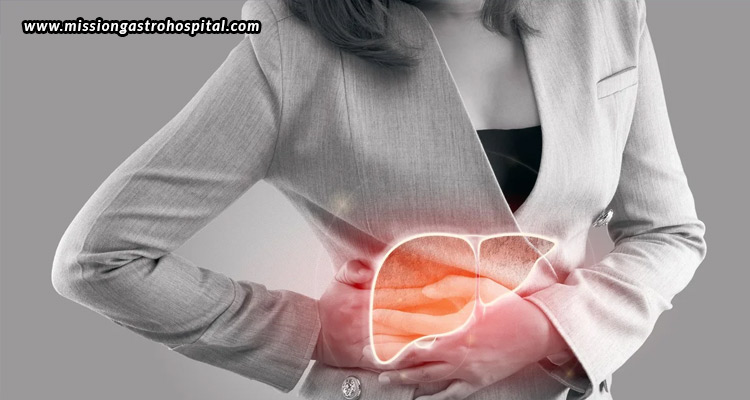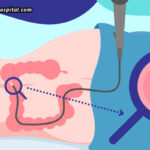While liver health is important for everyone, women face unique physiological and hormonal changes that can influence liver function in ways different from men. This is why this blog is dedicated specially to women. Given its key functions in detoxification, hormone regulation, digestion, and nutrient management, and the challenges women face due to hormonal shifts at various life stages, including menstruation, pregnancy, and menopause, which can influence liver health and increase the likelihood of liver-related issues, this blog sheds light on the specific risks, conditions, and care strategies every woman should understand to safeguard her liver health at every stage of life.
Why liver health matters to women
The liver plays a vital role in processing hormones, metabolizing fats, and detoxifying the body. For women, it carries the additional responsibility of managing fluctuating levels of oestrogen and progesterone. When liver function is impaired, hormonal imbalances can occur, leading to irregular periods, weight gain, skin conditions such as acne or melasma, fatigue, and mood swings. Additionally, women are more susceptible to certain liver disorders and may experience liver-related complications differently than men because of these hormonal influences.
Hormonal influence on the liver
The impact of hormonal fluctuations on liver function is significant, especially concerning oestrogen and progesterone. These hormones play a crucial role in bile production and cholesterol metabolism. Elevated hormone levels during pregnancy or hormonal treatments can increase the strain on liver functions. For instance, intrahepatic cholestasis of pregnancy (ICP) is associated with these hormonal changes and may result in symptoms like itching, fatigue, and potential complications during delivery if not properly monitored and addressed.
Liver condition possibilities in women
Certain liver conditions are particularly common or unique to women. For example, autoimmune hepatitis is more frequently diagnosed in women and involves the immune system mistakenly attacking liver cells, resulting in inflammation and potential liver damage. Additionally, pregnancy brings about unique risks, including rare but severe complications such as HELLP syndrome (Hemolysis, Elevated Liver enzymes, and Low Platelet count) and acute fatty liver of pregnancy (AFLP), both of which necessitate prompt medical intervention. It is crucial to identify early warning signs and obtain timely diagnoses to protect the health of both the mother and the foetus.
How a women’s lifestyle can impact her liver health
In the modern, rapidly changing environment, lifestyle decisions significantly impact liver health. Unhealthy eating patterns, lack of exercise, smoking, and alcohol intake can lead to liver damage over time. Non-Alcoholic Fatty Liver Disease (NAFLD) is becoming more prevalent among women, especially post-menopause when metabolic rates decrease and fat distribution shifts. Additionally, women process alcohol differently than men, and even moderate consumption can result in liver damage more swiftly in females due to their lower levels of liver enzymes responsible for alcohol metabolism.
Signs and symptoms women shouldn’t ignore
Liver disease often goes unnoticed, leading many women to remain undiagnosed until considerable damage has occurred. Be vigilant for symptoms such as ongoing fatigue, hormonal imbalances, skin alterations like acne, rashes, or dark patches, abdominal bloating and discomfort in the upper right quadrant, changes in urine or stool colour, itching, or unexplained bruising. It is crucial to seek the advice of a hepatologist if you experience persistent fatigue and bloating, menstrual irregularities without a clear cause, jaundice, itching, dark urine, a history of autoimmune diseases or viral hepatitis, or liver symptoms related to pregnancy.
Importance of early detection and regular screening
Liver diseases frequently develop without noticeable symptoms, making regular health screenings essential, especially for women who have risk factors like obesity, diabetes, a family history of liver issues, or previous complications during pregnancy. Conducting Liver Function Tests (LFTs), utilizing imaging techniques, and seeking advice from specialists can facilitate early diagnosis and help avert serious damage. A proactive approach to prevention, along with increased awareness, is the most effective strategy for preserving liver health throughout all life stages.
Liver-safe practices for women
Women should incorporate high-fibre foods like vegetables, whole grains, and cruciferous vegetables into their diet, along with healthy fats, while minimizing processed foods and sugars. Engaging in regular physical activity, including strength training and yoga, is beneficial for hormone regulation and reducing liver fat. Given that women are at a higher risk for liver damage from alcohol and toxins, it is crucial to limit these substances. Moreover, hormonal changes during menopause can increase the likelihood of obesity and non-alcoholic fatty liver disease (NAFLD), making it essential for women to focus on weight management and undergo regular liver screenings to ensure optimal liver health.
Where to seek help?
If you are dealing with ongoing fatigue, abdominal pain, jaundice, or other unexplained health issues, it is crucial to seek advice from a liver specialist. One place you can go is Mission Gastro Hospital, a recognized premier institution for liver care in Ahmedabad. With a skilled team of hepatologists and advanced facilities, Mission Gastro Hospital delivers customized diagnosis, treatment, and continuous support focused on women’s unique liver health requirements. Whether you are addressing a current condition or aiming to take preventive measures, this liver hospital in Ahmedabad offers the knowledge and care necessary for maintaining liver health.
Women’s liver health deserves more attention and proactive care. Understanding how hormonal changes, lifestyle factors, and stress impact the liver allows women to make informed decisions. With balanced nutrition, regular physical activity, emotional support, and timely medical intervention, women can significantly reduce their risk of liver disease. Prioritizing liver health not only enhances longevity but also improves quality of life, making it a cornerstone of holistic wellness.








